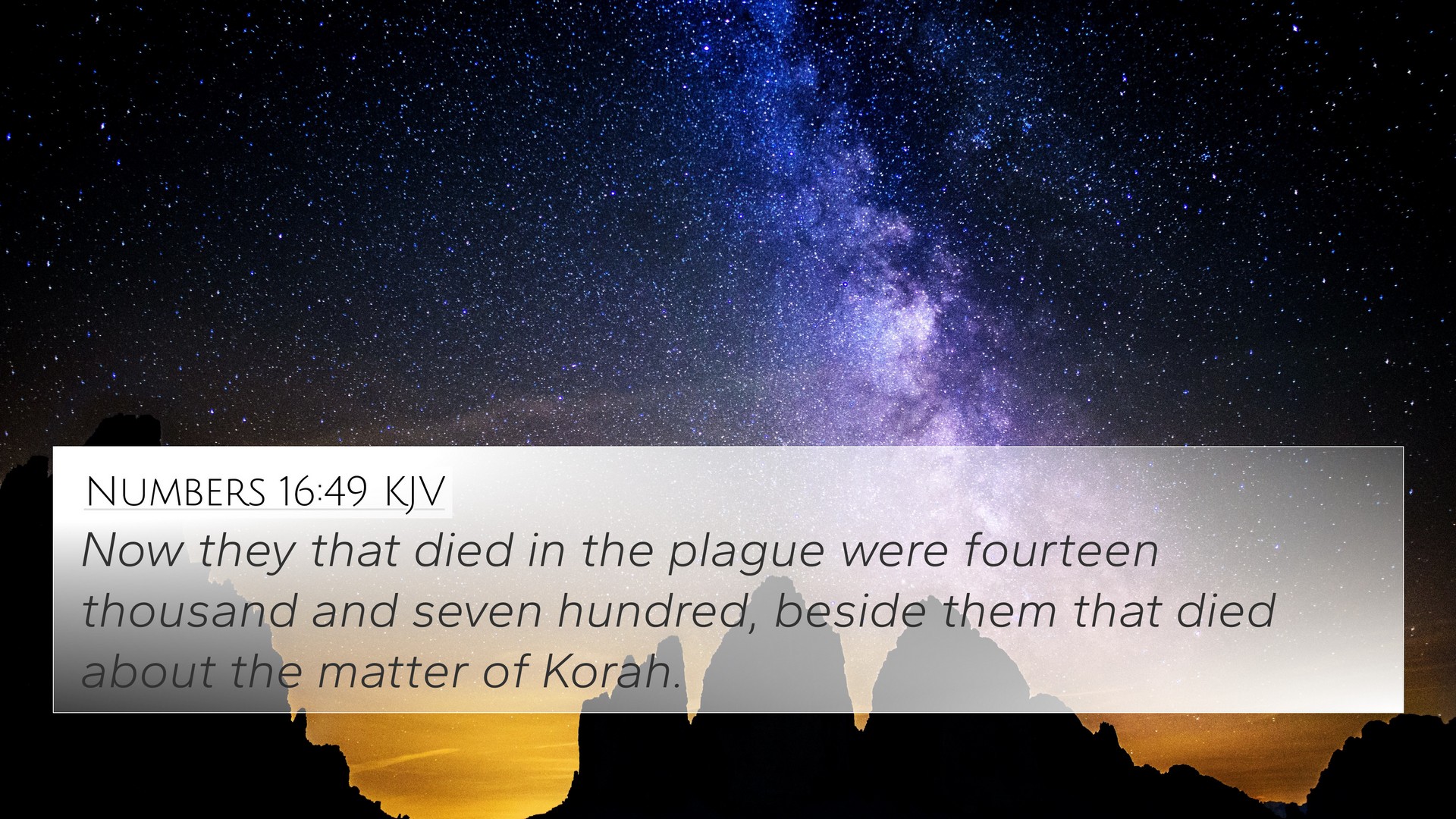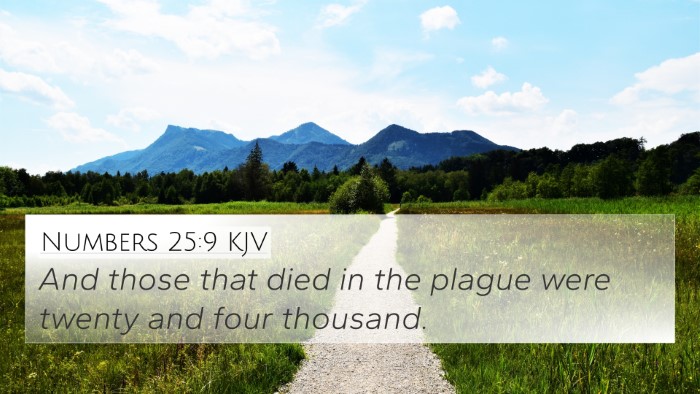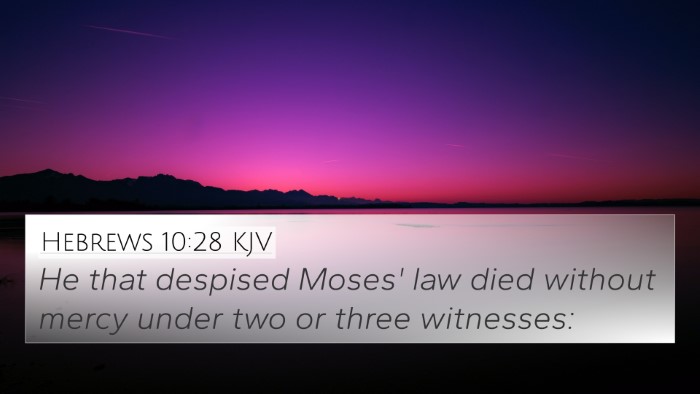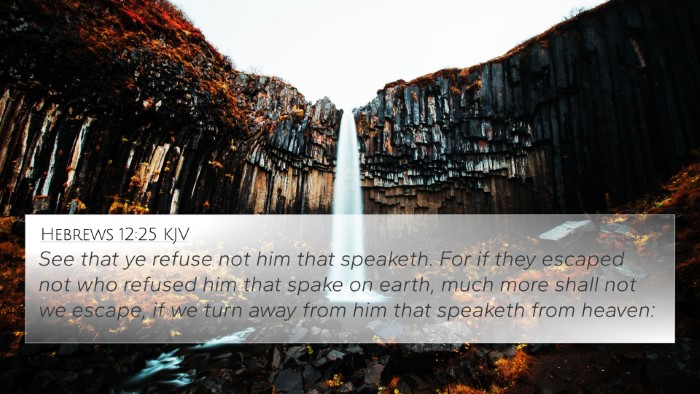Understanding Numbers 16:49
The verse Numbers 16:49 states, "Now those who died in the plague were 14,700, besides those who died on account of Korah." This scripture is a significant marker in the narrative of the rebellion led by Korah against Moses and Aaron. This verse highlights the consequences of rebellion against God's appointed leaders and serves as a sobering reminder of divine judgment.
Commentary Insights
Various commentaries provide in-depth exploration of this passage:
-
Matthew Henry:
Emphasizes that the death toll serves as a testament to God's severe judgment on those who challenge His authority. Henry elaborates that the figure of 14,700 symbolizes the seriousness of the rebellion and portrays God’s righteousness in executing judgment, reminding believers of the peril of disobedience and the importance of respecting God-given leadership.
-
Albert Barnes:
Suggests that this plague was a direct consequence of the people's distrust and rebellion against God. Barnes highlights that it was not just those who openly rebelled (like Korah), but additional innocent parties who also perished. This indicates how sin can affect the broader community, thus reinforcing the need for accountability and humility within the faith.
-
Adam Clarke:
Points out that the deaths occurring from the plague emphasize the severity of the issue at hand. Clarke reflects on the fact that God’s judgment was both just and necessary, portraying the divine response to human defiance. He asserts that the clear distinction between the fate of Korah's followers and others illustrates the ramifications of disobedience against God’s decrees.
Thematic Connections
Numbers 16:49 invites us to explore numerous themes within the Bible, including:
-
Judgment: This verse highlights God’s judgment on sin and rebellion.
-
Authority: The relationship between divinely appointed leaders and the people.
-
Community Impact: The collective consequences of individual disobedience.
-
Divine Justice: Understanding God’s role in delivering justice.
Biblical Cross-References
To deepen the understanding of Numbers 16:49, consider the following Bible verses that relate to its message:
-
Exodus 32:35: "And the LORD plagued the people because they made the calf, which Aaron made."
-
Numbers 14:37: "Even those men that did bring up the evil report upon the land, died by the plague before the LORD."
-
1 Corinthians 10:10: "Neither murmur ye, as some of them also murmured, and were destroyed of the destroyer."
-
Hebrews 3:17: "But with whom was he grieved forty years? Was it not with them that had sinned, whose carcasses fell in the wilderness?"
-
Romans 6:23: "For the wages of sin is death; but the gift of God is eternal life through Jesus Christ our Lord."
-
Galatians 6:7: "Be not deceived; God is not mocked: for whatsoever a man soweth, that shall he also reap."
-
Revelation 21:8: "But the fearful, and unbelieving, and the abominable, and murderers, and whoremongers, and sorcerers, and idolaters, and all liars, shall have their part in the lake which burneth with fire and brimstone: which is the second death."
Conclusion
Numbers 16:49 serves as a poignant reminder of the consequences of sin and rebellion against God’s appointed authorities. By exploring this scripture through various commentaries and thematic connections, alongside comparative Bible verse analysis, believers are encouraged to seek a deeper understanding of God's justice, leadership, and the communal aspects of faith. By engaging in tools for Bible cross-referencing, readers can further enrich their spiritual journey and draw meaningful connections between various scriptures throughout the Bible.
As you engage in cross-referencing Biblical texts, consider using a Bible concordance or a Bible cross-reference guide to explore other connections that enhance your understanding of the themes present in Numbers 16:49. Whether you're studying for personal growth or sermon preparation, these tools facilitate a comprehensive exploration of God’s Word.








